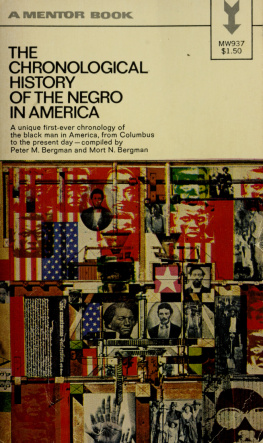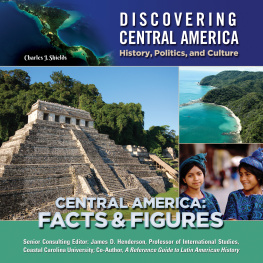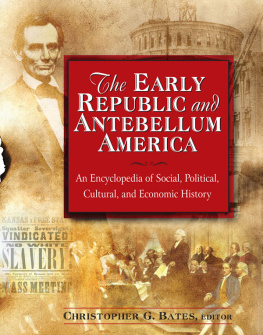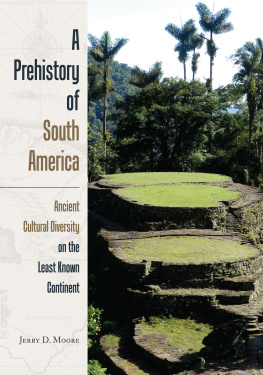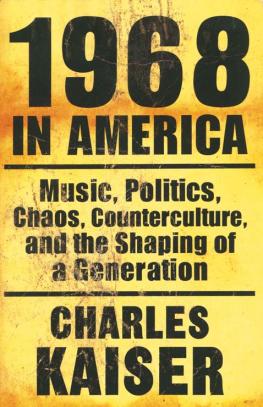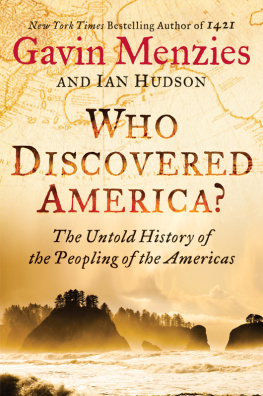
The chronological history of the Negro in America
Bergman, Peter M. cn
Bergman, Mort N.
This book was produced in EPUB format by the Internet Archive.
The book pages were scanned and converted to EPUB format automatically. This process relies on optical character recognition, and is somewhat susceptible to errors. The book may not offer the correct reading sequence, and there may be weird characters, non-words, and incorrect guesses at structure. Some page numbers and headers or footers may remain from the scanned page. The process which identifies images might have found stray marks on the page which are not actually images from the book. The hidden page numbering which may be available to your ereader corresponds to the numbered pages in the print edition, but is not an exact match; page numbers will increment at the same rate as the corresponding print edition, but we may have started numbering before the print book's visible page numbers. The Internet Archive is working to improve the scanning process and resulting books, but in the meantime, we hope that this book will be useful to you.
The Internet Archive was founded in 1996 to build an Internet library and to promote universal access to all knowledge. The Archive's purposes include offering permanent access for researchers, historians, scholars, people with disabilities, and the general public to historical collections that exist in digital format. The Internet Archive includes texts, audio, moving images, and software as well as archived web pages, and provides specialized services for information access for the blind and other persons with disabilities.
Created with abbyy2epub (v.1.7.0)
A MENTOR BOOK
THE
CHRONOLOGICAL
HISTORY
OFTHE NEGRO
IN AMERICA
A unique first-ever chronology ofthe black man in America, from Columbusto the present day compiled byPeter M. Bergman and Mort N. Bergman
MW937$1.50
Tin
mix i*,*
rffefB
ISW3,
BLACK HERITAGE
In 1712, over 100 years before NatTurner's revolt, a slave rebellion in NewYork resulted in the deaths of nine whitesand sixteen black men .
In 1865, a black sailor was awardedthe Navy Medal of Honor for bravery ina Civil War action..
In 1916, more than 50 years ago,American civil rights groups such as theNAACP were split over the issue of blackmilitancy .
THEyCHRONOLOGICAL HISTORY OF THE NEGRO INAMEklCA charts the black mans course in this countryfrom the fifteenth century to the present. Here is a trulyunique and invaluable book for the scholar and for thegeneral reader.
SIGNET and MENTOR Booksof Related Interest
THE SOUL OF BLACK FOLK by W. E. B. DuBois.
A brilliant socio-historical study of the Negro inAmerica following the Civil War. (#CY458-$1.25)
D THE NEGRO REVOLUTION-From Its African Gen-esis to the Death of Martin Luther King by RobertGoldston. A provocative and well-documented anal-ysis of Negro history. This definitive work tracesthe plight of the black people from Africa throughthe Civil War, post-Civil War on to the civil rightsmovement of today. (#Q3915-95d
D EARLY AMERICAN VIEWS ON NEGRO SLAVERY-From the Letters and Papers of the Founders of theRepublic by Matthew T. Mellon. An unfettered lookat the thoughts and feelings of the men who pro-claimed "all men are created equal."
(#MY920-$1.25)
D BLACK VOICES: AN ANTHOLOGY OF AFRO-AMER-ICAN LITERATURE edited by Abraham Chapman.
An exciting and varied anthology of fiction, auto-biography, poetry and literary criticism by America'sblack writers, among them Ralph Ellison, RichardWright, and James Baldwin. (#MW866-$1.50)
THE NEW AMERICAN LIBRARY, INC., P.O. Box 2310, GrandCentral Station, New York, New York 10017
Please send me the SIGNET and MENTOR BOOKS I have
checked above. I am enclosing $ (check or
money orderno currency or C.O.D.'s). Please include the listprice plus 10* a copy to cover mailing costs. (New York Cityresidents add 6% Sales Tax. Other New York State residentsadd 3% plus any local sales or use taxes).
Name ___________ __,
Address __ ; _,
City State Zip Code
Allow at least 3 weeks for delivery
In Memoriam
OF
GEORGE WASHINGTON WILLIAMS
A GREAT AMERICAN HISTORIAN
Table of Contents
A. SLAVERY
Page
1. The Beginning (1492-1618) 1
2. Under British Rule (1619-1792) 10
3. From the Cotton Gin to the Emancipation
Proclamation (1793-1864) 73
B. RECONSTRUCTION
(1865-1877) 241
C. "SEPARATE BUT EQUAL"
1. The Darkest Period (1878-1908) 282
2. The Genesis of the NAACP (1909-1932) 357
3. From the New Deal to Brown v. Board
of Education (1933-1954) 460
D. "WITH ALL DELIBERATE SPEED"
(1955-1968) 540
Bibliography of Bibliographies 617
Index 625
A. SLAVERY
I. The Beginning
The Negro came to America in chains. While the colonizationof the New World was brought about through importation ofpersecuted and outlawed Europeans partly as indentured labor,the Negro came from Africa only as a slave.
Slavery, a form of human exploitation distinct from indentureand serfdom of the feudal society, was not known in the Chris-tianized part of the world until about 50 years before Columbussailed West. Paradoxically, slavery was introduced in the NewWorld at exactly the same time as the dissolution of serfdombegan to take place in Europe; first in mercantilistic Italy andHolland. Paradoxically also, at that same time the sovereign rulersceased to prevent, even promoted, individual migration acrossthe oceansthus an act of "liberating" their subjects.
The history of the Negro in America begins with the re-discoveryof Africa by the Portuguese. In 1442, Antam Goncalvezt a cap-tain in the realm of Henry the Navigator, captured two or threeMoors of noble birth on the African coast. The Moors offeredas ransom "ten blacks, male and female." The ransom wasaccepted, and the Negroes were brought to Lisboa; sold at themarket, these legendary%ten Negroes represented the beginning ofthe African slave trade which up till the year 1517 was, based ona Papal grant, monopolized by the Portuguese crown. Henryhimself tried to stop the abuses of the slave trade and forbadethe kidnaping of Negroes in 1455. Yet, in the ecclesiastical annalsof Ortiz de Zuniga under the date 1474 it is related, as an as-tonishing experience, that Negro slaves abounded in that cityand the tithes levied on them produced considerable gains for theroyal revenue. In 1482, the Portuguese built the first slave-tradingport, Sao Jorge de Mina, on the African Gold Coast.
StHl, practically no countries other than the Iberian attemptedto introduce Negro slavery. And even there it dwindled andwould most likely have disappeared if Spain's role in the NewWorld had not supplied the basic conditions for the historicallynew institution of Negro slavery. At the time of the discoveryof America, Spain and Portugal were economically poor countries,i.e. without substantial manufactures. The expulsion of the Moslemsand Jews which was effectuated in the same year as Columbus'svoyage, deprived these countries of their most useful and active
14921498
population; the great steel works of Toledo, the leather factoriesof Cordoba and the intensive plantations of olive and fruit treeswere replaced by grazing land for sheep, and thereby land andmanufacture that had been fruitful before the Inquisition weresystematically ruined in order to fit the ambitions of the Grandeesand the Churchi Robbery and plunder became the basic economyof these then mightiest powers of the Christian world, "on whichthe sun never set." In 1493, by a Papal Bull, the New World wasdivided {without real geographic knowledge) between Spain andPortugal. The major economic revolution was based on the goldand silver the conquistadores had looted, and on the new system ofhuman exploitation that turned Africa into a warren for thecommercial hunting of black-skins.
Next page
